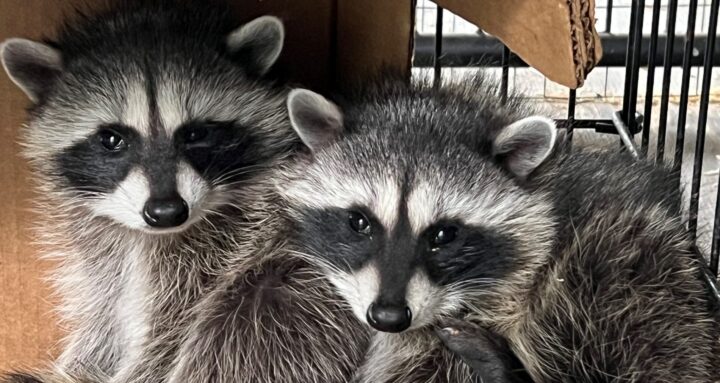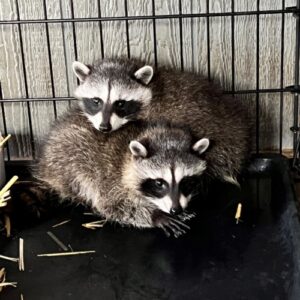
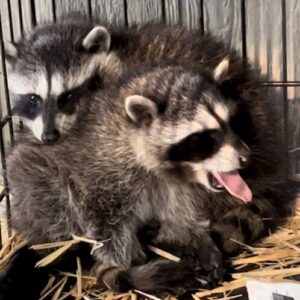
At Cat Tales Wildlife Center, our mission is to provide a safe haven for wildlife in need, giving them a second chance at life in their natural habitat.
On June 28th, we welcomed two adorable raccoon kits into our care, setting in motion a heartwarming story of resilience and hope. These little ones, approximately 7 weeks old, had been orphaned and found their way to Washington Fish and Wildlife for rehabilitation. As the only wildlife rehab in northeastern Washington equipped to care for raccoons, we were asked to provide a home where they could learn to thrive and eventually be released back into the wild.
A New Beginning:
The two raccoon kits were in dire need of nurturing, having lost their mother at such a young age. They had not been weaned, but at their age, they were ready to learn how to eat solid food. From the moment they arrived, our dedicated team of rehabilitators sprang into action, creating a safe and supportive environment for their rehabilitation.
Hands-Off Approach:
To ensure their successful release into the wild, we decided to adopt a hands-off approach. This means that we intentionally do not handle them, allowing them to retain their natural instincts and avoid becoming habituated to human presence. Our goal is to instill vital survival skills, which will empower them to thrive once they return to their natural habitat.
A Learning Journey:
While the raccoon kits may not be accustomed to human interaction, they are surrounded by our experienced staff, who provide them with the necessary care while minimizing their exposure to humans. Our priority is to give them the tools they need to become self-sufficient in the wild.
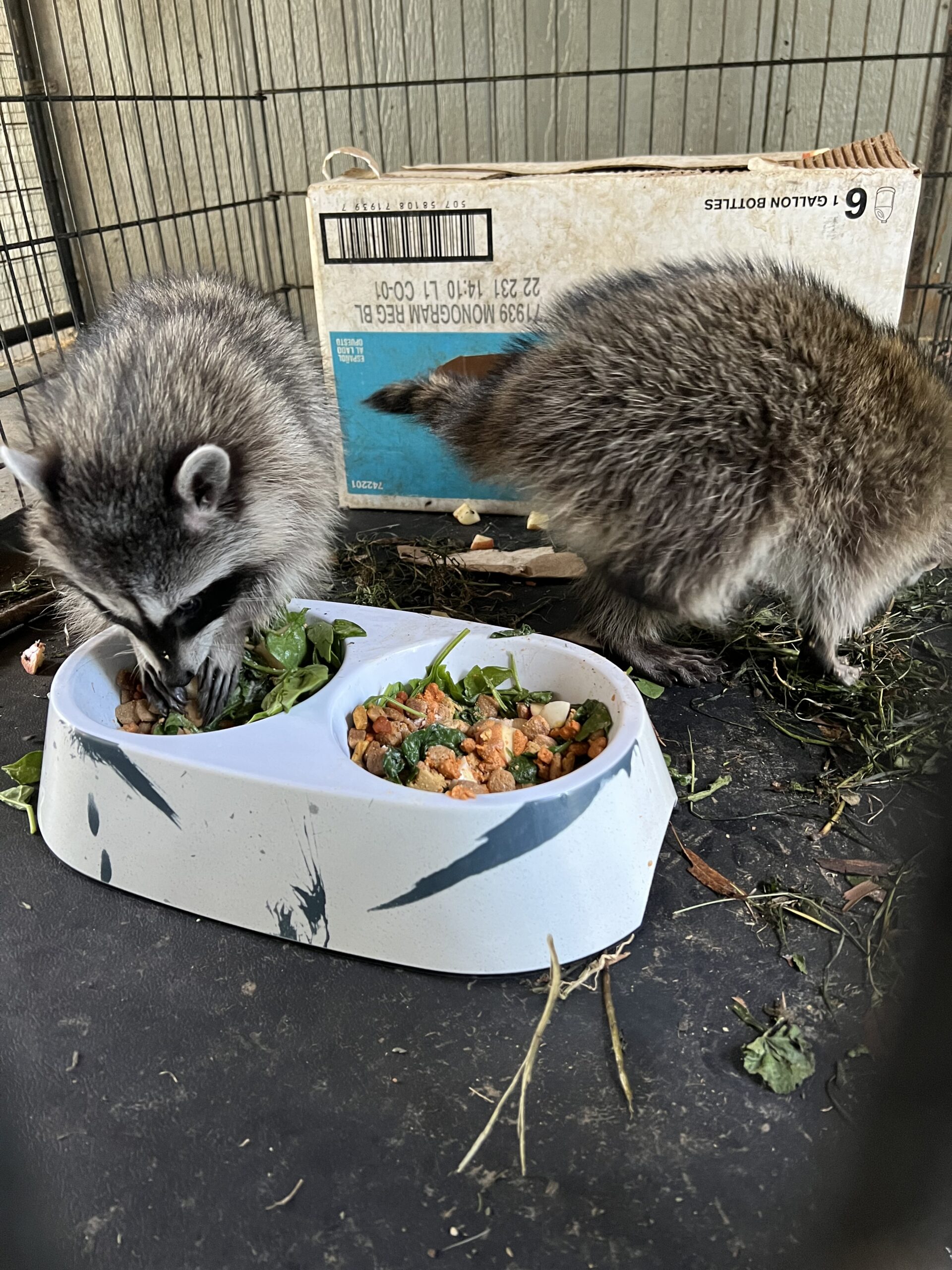
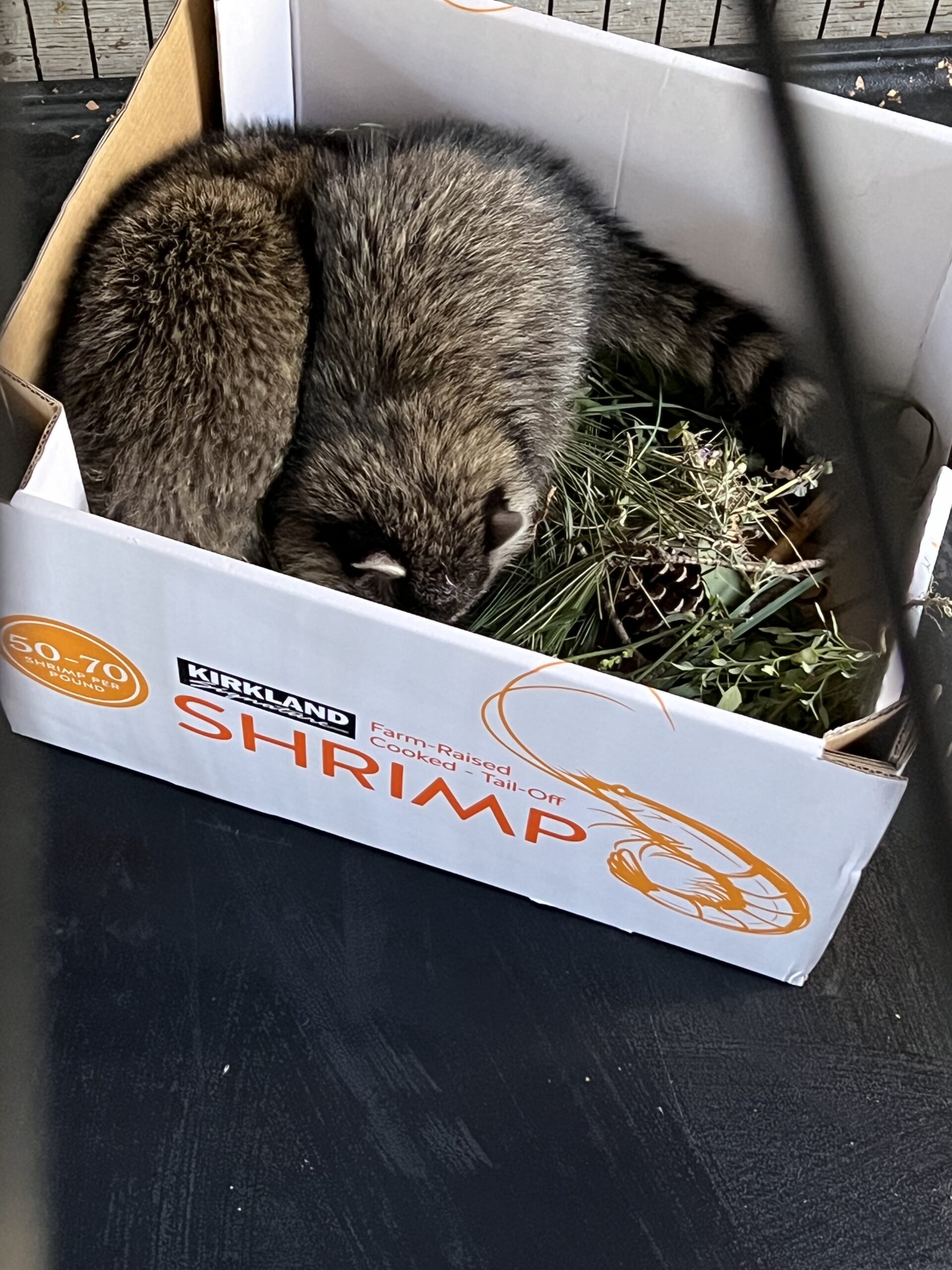
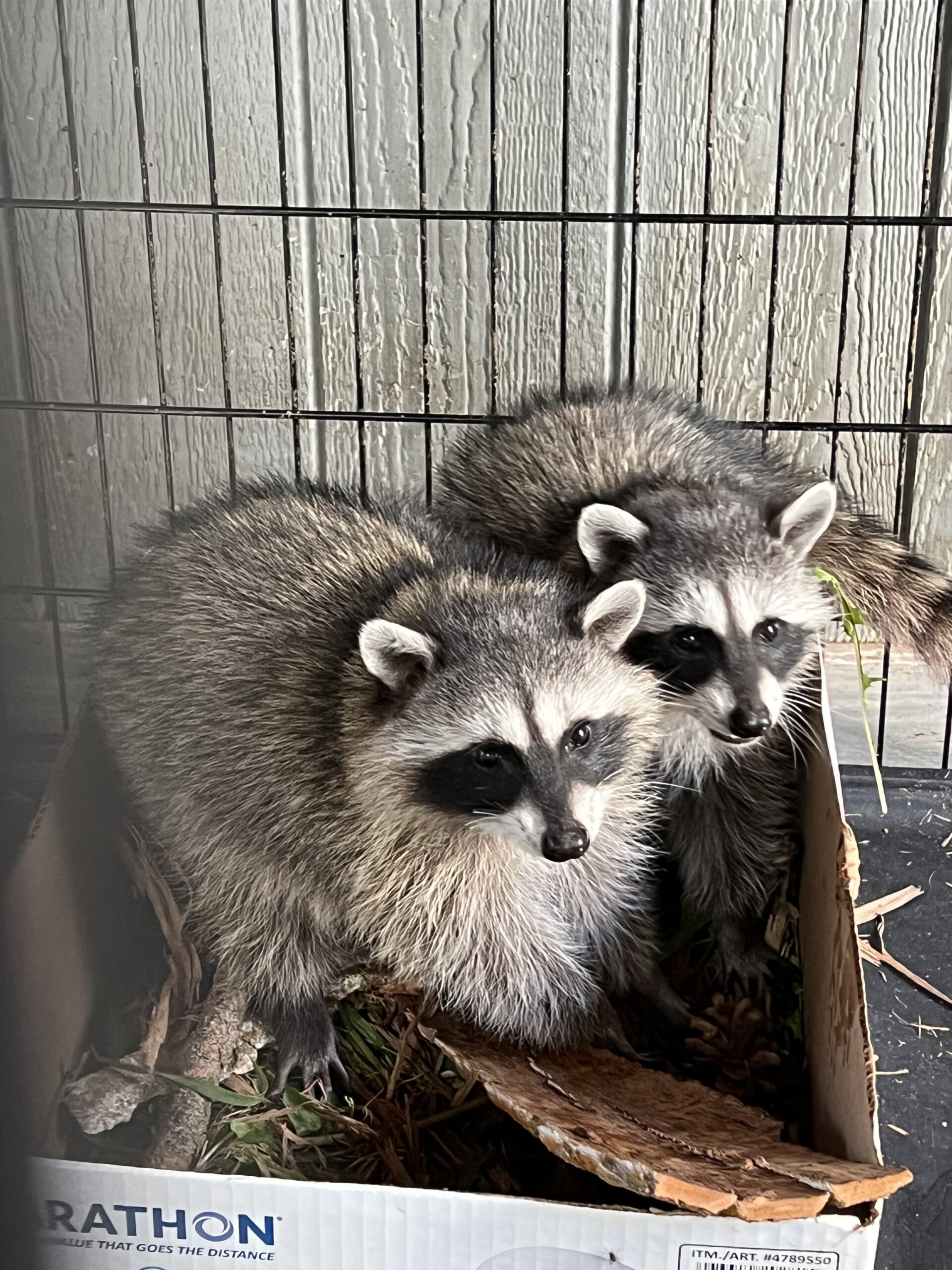
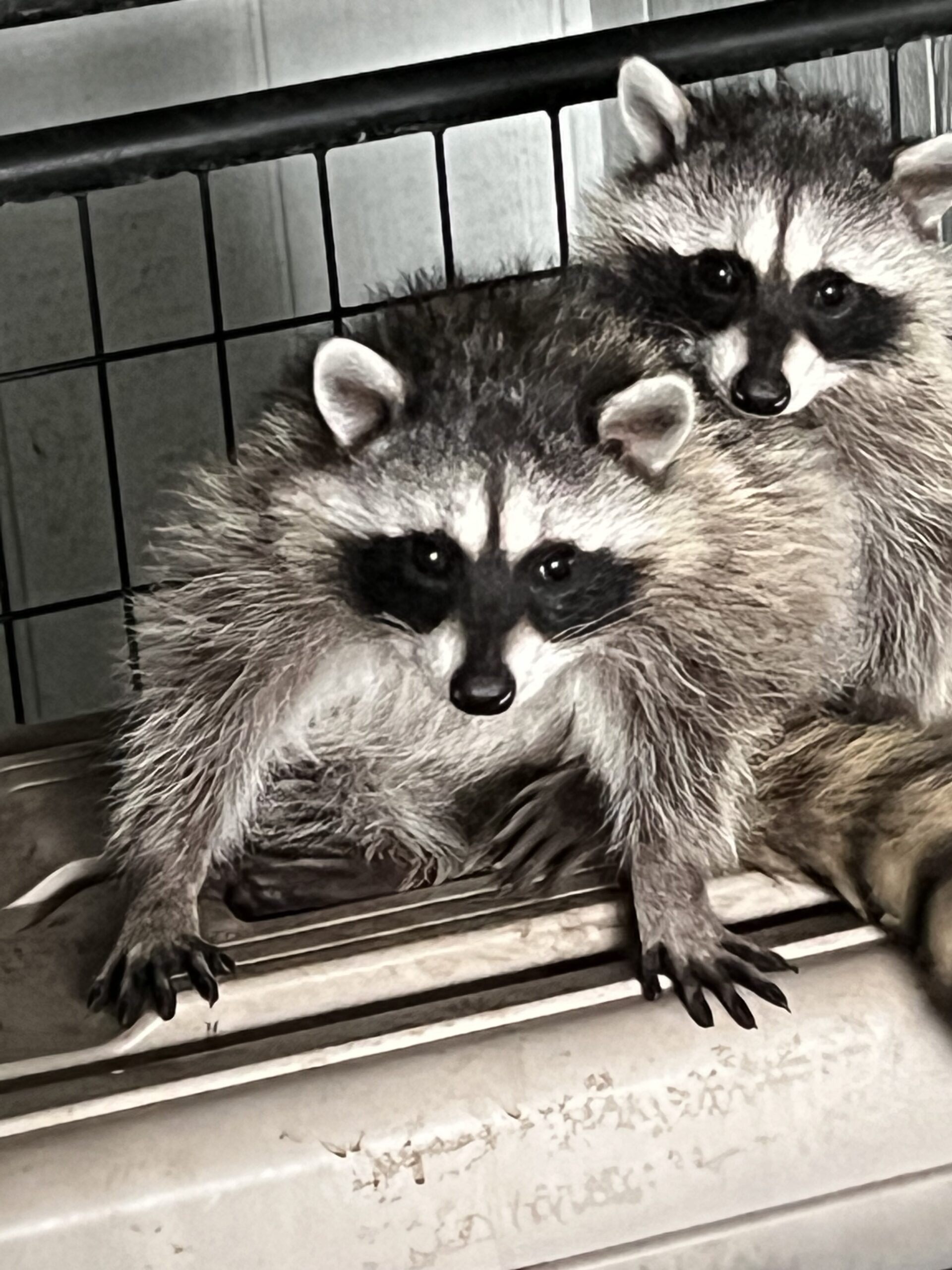
A Glimpse of Hope:
Though their rehabilitation journey may not be visible to the public, it is a powerful testament to the strength and resilience of these young raccoons. Each day, they grow stronger, learning to forage, climb, and navigate their surroundings—all crucial skills for survival.
A Future in the Wild:
Our commitment to these raccoon kits extends beyond just their physical needs. We are determined to give them the best possible chance at a future in the wild. Our team meticulously observes their progress, ensuring that they are developing the instincts necessary for life in the wild. When the time comes, we will joyfully release them, knowing that they are well-equipped to embrace their newfound freedom.
Successful Release:
The raccoons were released in mid-September, having developed survival skills. We wish them well in their wild world.
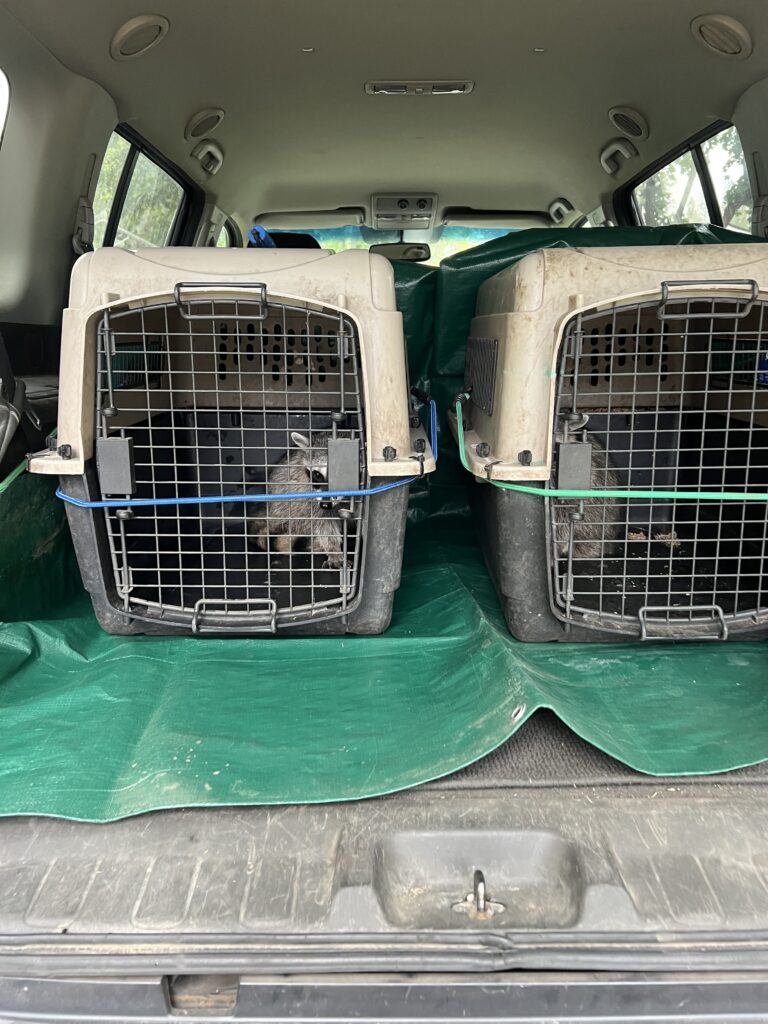
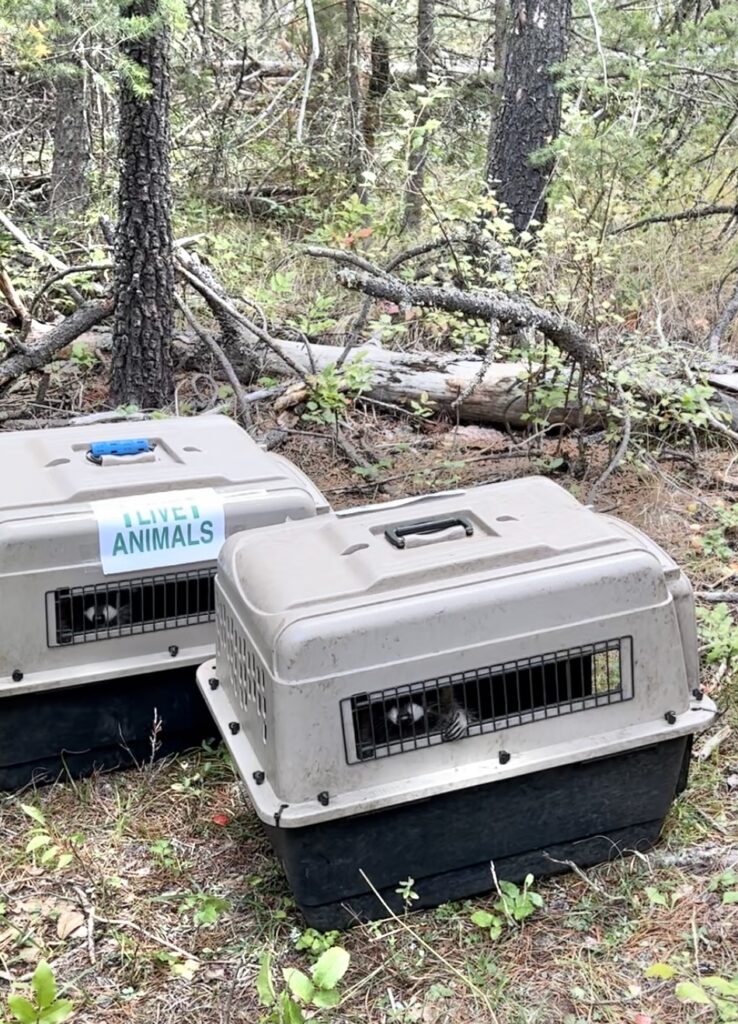
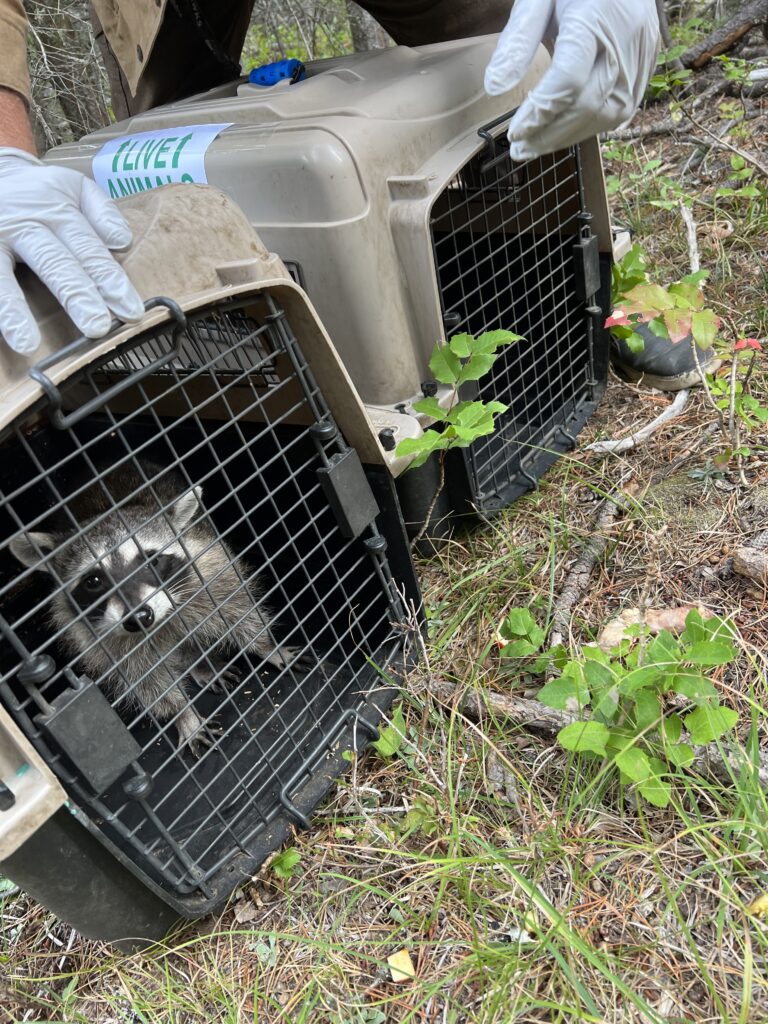
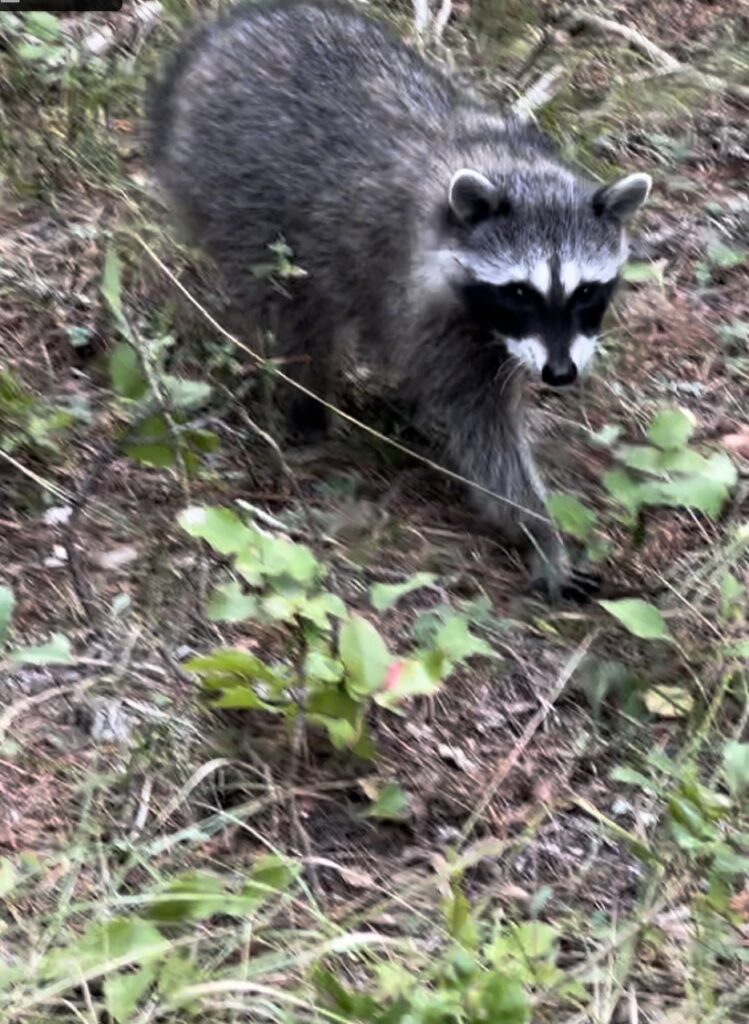
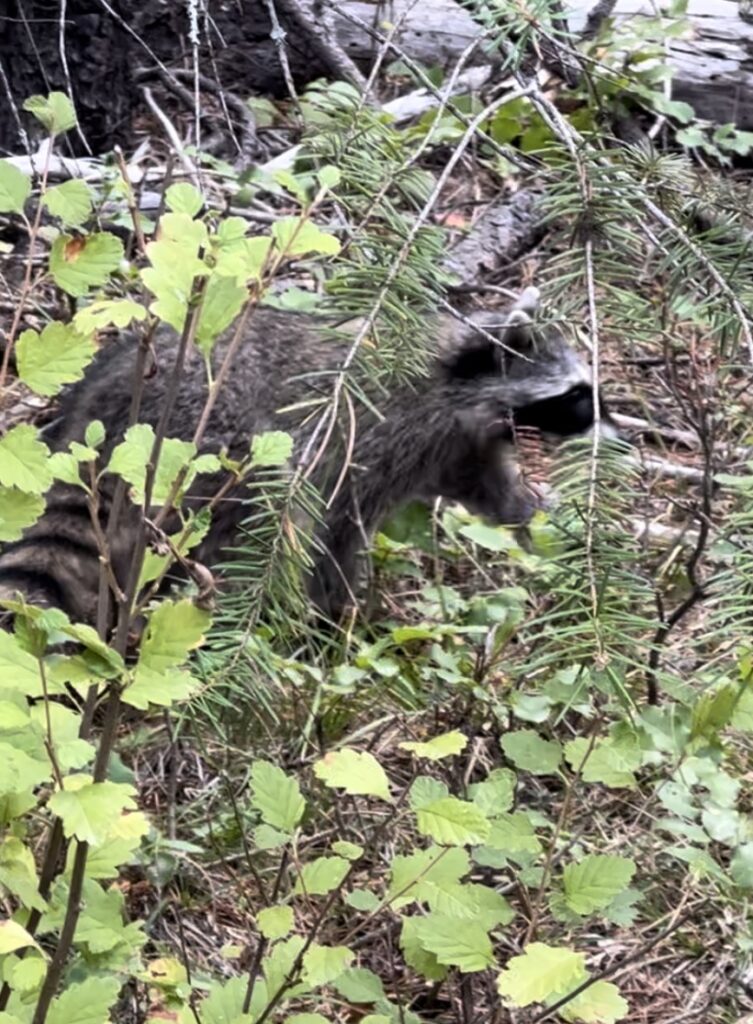
Your Support Matters:
As a non-profit organization, we rely on the support of compassionate individuals like you. By contributing to our cause, you become an integral part of the story of these raccoon kits. Your generosity enables us to provide the specialized care they need for their successful rehabilitation and future release.
The journey of these two raccoon kits embodies the very essence of hope and resilience. Through our hands-off approach and dedicated care, we are committed to empowering them to become wild raccoons once more. We are incredibly grateful for the opportunity to be a part of their story and look forward to the day when they can return to the wild, thriving and living life on their terms. Together, we can make a lasting impact on the lives of these remarkable creatures and contribute to a brighter future for wildlife in our region.
If you see a baby deer, raccoon, or rabbit that seems to be alone, the first thing you should do is stay calm. It is important to remember that these animals are often left alone by their mothers for long periods of time, so just seeing them alone does not mean that they are orphaned.
Here are some things you can do if you see a baby deer, raccoon, or rabbit that seems to be alone:
- Observe the animal from a distance. This will help you to determine if the animal is truly orphaned or if the mother is just out hunting or foraging.
- Check for injuries. If the animal is injured, you should contact a wildlife rehabilitator immediately.
- If the animal is not injured, leave it alone. The mother will likely return for the animal soon.
- If you must move the animal, place it in a safe location near where you found it. Do not touch the animal or try to feed it.
If you are unsure what to do, you can always contact a wildlife rehabilitator for advice. They will be able to assess the situation and determine the best course of action.
Here are some additional tips:
- Do not touch the animal. Human scent can scare the mother away.
- Do not bring the animal home with you. It is illegal to keep orphaned wildlife without a permit.
- Do not feed the animal. This can make it sick.
- Do not give the animal water. This can drown it.
- Do not leave the animal in direct sunlight or in extreme temperatures.
By following these tips, you can help to ensure the safety of the animal and its mother.

